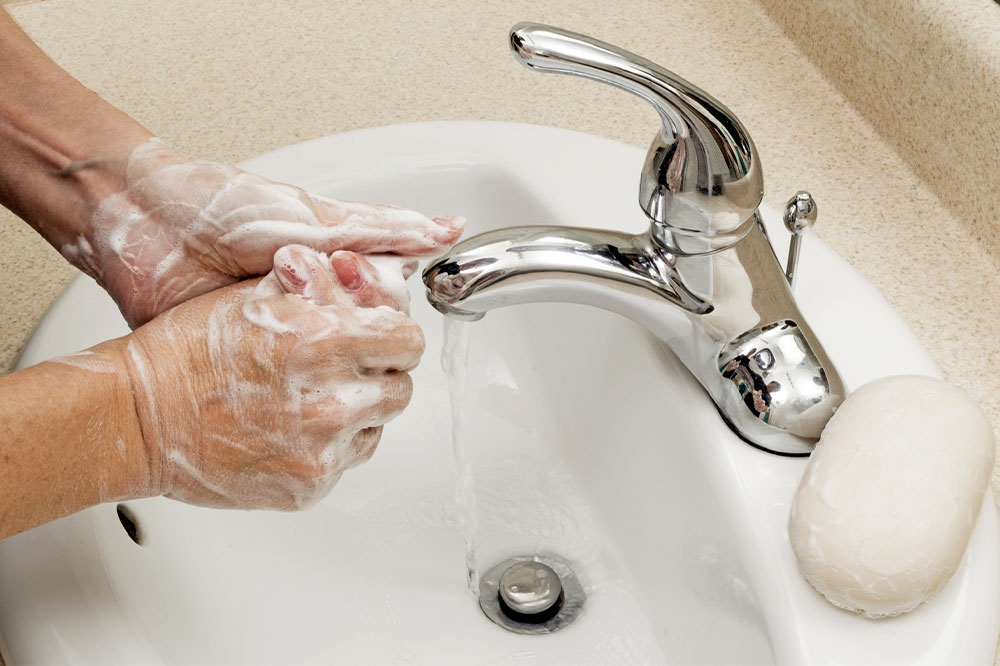
4 types of soaps that exacerbate eczema flare-ups
Eczema is a skin disorder that causes the skin to become red, itchy, and inflamed in the presence of specific triggers. Despite being one of the most common skin disorders, the cause of this condition is unknown. Eczema can appear anywhere on the skin and affect any body part, and one of the most common triggers is soap. Some soaps contain ingredients that damage the skin barrier. Here are a few eczema-causing soaps to know.
Different types of eczema causing soaps
Soaps with a lot of synthetic fragrances
Although soap with a lot of fragrance keeps the body fresh, scented skin care products can damage the skin’s barrier. Fragrance-mixed products frequently irritate eczema patients, potentially leading to allergies and flare-ups. Look for skin-care products that do not contain synthetic fragrances or naturally occurring, potentially irritating extracts. Several skin-care products use essential oils to give them their fragrance. Read the label and ingredient list before buying such products.
Soaps with Methylisothiazolinone
Cosmetics and some soaps contain these preservatives. For example, eczema patients who use products containing these ingredients may experience more severe flare-ups. However, before purchasing, it is critical to read the product labels and ingredients to avoid purchasing products that contain excessive amounts of chemicals and artificial additives.
Antibacterial soaps
Several antimicrobial soaps contain harsh chemicals, such as alcohol. These chemicals may cause dry skin. Avoiding cleansers may cause the skin to dry, causing eczema to worsen and the skin to become itchy and flaky. Using the proper technique to remove bacteria and other germs is more critical than harsh antibacterial soap.
Propylene glycol soaps
Propylene glycol is found in many creams, soaps, and moisturizers. It helps some people with eczema because of its moisturizing and emulsifying properties, but it can irritate and cause rashes in some people. Therefore, it is critical for people with eczema to patch-test new products before applying them to their skin to avoid rashes and flare-ups.
Other triggers of eczema
Several foods
Eczema is occasionally linked to food allergies like milk, eggs, peanuts, wheat, etc. Talk to your physician and a certified dietitian to see whether temporarily eliminating that meal may be helpful if a flare-up happens after consuming a particular food.
Exercise
Although exercise benefits the body, excessive sweating may trigger an outbreak. This is because human sweat contains trace amounts of nickel, zinc, copper, iron, and sodium, and a buildup of these natural compounds on the skin can aggravate eczema.
Dry skin
Eczema flare-ups can occur when the skin becomes extremely dry, tight, rough, or even scaly. When scratched, dry skin irritation and redness worsen. One method of treating dry skin is to stay hydrated, especially during the winter or in dry areas.
Stress
Although stress and emotional distress do not cause eczema, they can exacerbate it. Cortisol is a hormone that the body produces in response to stress. Excess cortisol production in the body due to prolonged or severe stress results in an inflammatory response in the skin. This eczema appears as a highly itchy hand and foot blister. Consulting a healthcare professional can help one solve this problem.
Best tips to manage eczema
- Moisturize at least twice a day. Find a skin-friendly product or combination of products. Choose items that do not contain colors, alcohol, scents, or other potentially irritating ingredients. Allow the moisturizer to absorb into the skin before applying makeup.
- Try pushing on or massaging the skin when it itches rather than scratching. Cover the itchy region to keep from scratching it. Keep your nails clipped.
- Take a warm shower or bath instead of a hot one every day. Apply moisturizer while the skin is still wet. Use a non-soap soft cleaner. Choose one that does not contain any colors, alcohol, or scents. Harsh soaps can remove natural oils from the skin. After using the cleanser, thoroughly rinse it away.
- Use a humidifier. Hot, dry indoor air can cause sensitive skin to become dehydrated, which exacerbates itchiness and flaking. A portable humidifier or one connected to the furnace adds moisture to the air in the home. This reduces the possibility of dry skin.
- Wear cool, smooth-textured clothing. Avoid wearing clothing that is too tight, scratchy, or harsh. Wear lightweight clothing that allows the skin to breathe in hot weather or when exercising. Avoid harsh detergents and fabric softeners that irritate the skin when washing clothes.
- Stress and other emotional conditions can aggravate eczema. Being aware of one’s stress and anxiety levels and taking action to improve emotional well-being may also benefit the skin.


